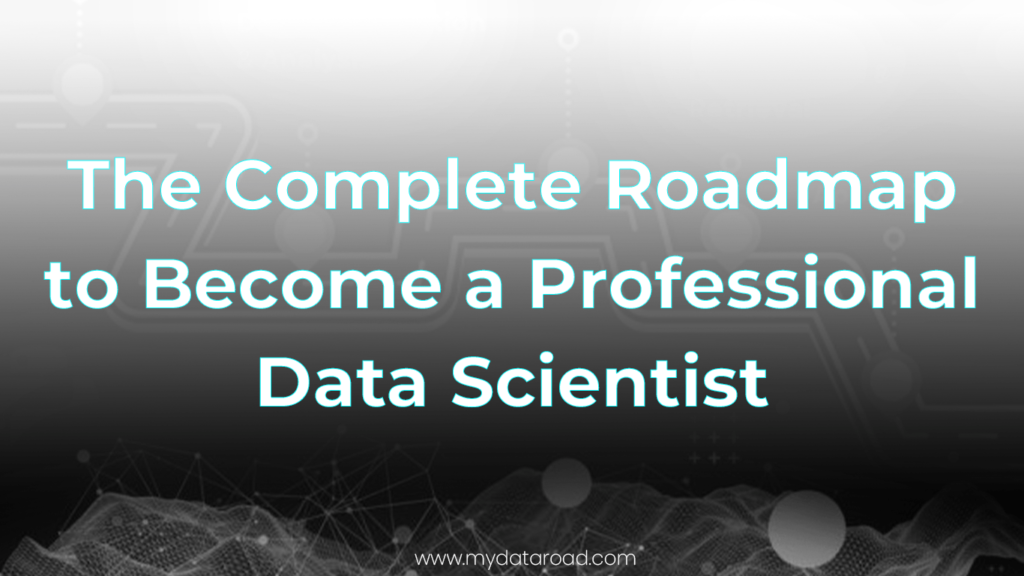Introduction: Charting Your Data Analysis Career
In today’s data-driven world, the ability to analyze large datasets and extract actionable insights has become a highly sought-after skill across countless industries. As the volume of available data continues to grow exponentially each year, companies are urgently looking to hire qualified data analysts to help make sense of this data deluge.
Career opportunities for data analysts are booming as a result. According to LinkedIn’s 2020 Emerging Jobs report, data analytics roles saw 37% annual growth, with over 10,000 job openings added. Data analyst salaries are also lucrative, with average pay exceeding $67,000 according to Glassdoor. Whether at leading tech firms, financial institutions, retailers, healthcare systems or government agencies, demand for analytics talent is surging.
However, the path to launching a successful career in data analysis is not always straightforward. Aspiring analysts must build proficiency across a diverse array of technical abilities like programming, statistics, data infrastructure, visualization and more. Soft skills in communication, collaboration and critical thinking are equally crucial. This article aims to provide readers with a structured roadmap to help navigate the journey to becoming a professional data analyst.
We cover the essential competencies to develop first, key technical skills to master, practical experience to gain, industry knowledge to acquire, strategies for landing that all-important first job, and approaches for continual skills development over the long-term. With the right dedicated approach, an exciting and fulfilling career in data analysis is absolutely within reach. Let’s explore the step-by-step guide!
Getting Started: Building Core Competencies
Before diving into advanced analytics techniques, it’s important to build competency in foundational data skills and analytical thinking. Aspiring analysts should focus first on developing:
- Math and Statistics Skills: Having proficiency in areas like algebra, calculus, probability, distributions, statistical modeling and hypothesis testing allows you to grasp more complex data analysis at an intuitive level. Consider taking university classes to fill in any knowledge gaps.
- Critical Thinking and Problem Solving: Top analysts don’t just crunch the numbers. They ask strategic questions, structure problems systematically, and exercise deductive reasoning to extract meaningful insights. Build these muscles through brain teasers, logic puzzles and case exercises.
- Introductory Data Skills: Gain proficiency with essential skills like Excel, SQL, database structures, and data visualization. Platforms like DataCamp offer excellent introductory courses and hands-on practice with these core competencies.
- Fundamental Analysis Techniques: Learn basic methods like descriptive statistics, AB testing, cohort analysis, correlation vs causation, statistical significance testing and data visualization best practices.
- Communication and Collaboration: Data analysts collaborate cross-functionally and must clearly communicate complex insights to stakeholders. Consider improv classes or joining toastmasters to develop these soft skills.
Establishing competency in these foundational areas provides the necessary analytical building blocks to layer on more advanced technical expertise. But before diving further in, it’s important to…
Determine Your Area of Focus
While core data analysis logic remains consistent across functions, its application varies significantly between industries and roles. It’s helpful to determine early on what area you want to specialize in. For example:
- Marketing Analytics: Analyze campaign performance, web traffic, funnel optimization, audience segmentation
- Financial Analytics: Analyze risk models, fraud detection, portfolio optimization, forecasting
- Operations Analytics: Analyze logistics optimization, predictive maintenance, quality assurance
- Healthcare Analytics: Analyze clinical variances, patient outcomes, readmission risk factors
- Product Analytics: Analyze user behavior, conversion optimization, cohort retention
Gaining expertise in high-demand domains makes you more attractive to employers. Specialized skills also enable you to better understand the business context and real-world use cases.
Building Technical Proficiency: Key Programming Languages
While business context is crucial, it’s equally important to build hands-on proficiency in key programming languages and platforms leveraged by data analysts:
- Python: This versatile open-source language is a must-have skill for analysts, along with NumPy, Pandas, Matplotlib and Seaborn libraries for data manipulation and visualization.
- R: The open-source R language, along with the Tidyverse set of packages, is popular for statistical analysis and modeling.
- SQL: This specialized language allows filtering, combining, aggregating and transforming data stored in database systems. SQL skills provide greater data flexibility.
- Certification Programs: Structured certifications like Google Analytics Individual Qualification validate abilities. Cloudera, IBM and Microsoft also offer reputable data analyst certifications.
- Self-Study vs Formal Education: Some analysts learn through hands-on experimentation, while others prefer guided curricula. Choose the approach that best fits your learning style.
Technical skills demonstrate capabilities to employers. But hands-on experience is critical…
Gaining Hands-On Experience: Projects and Internships
Theoretical learning will only take you so far. Applying programming languages and analysis techniques to real-world datasets develops the practical abilities and experience needed to excel as a data analyst.
- Building a Project Portfolio: Analyze public datasets from sites like data.world and Kaggle. Showcase your projects on a personal website or GitHub.
- Internships and Entry-Level Roles: Seek internship opportunities at tech firms or companies with analytics teams to gain hands-on experience.
- Hackathons and Contests: Events like those hosted on Kaggle present data challenges to solve. They provide great hands-on practice and networking opportunities.
- Avoiding “Tutorial Purgatory”: Continually put your skills into practice by taking on your own analysis projects. Don’t just watch passive video tutorials.
- Leveraging Interactive Courses: Sites like DataCamp provide courses with interactive coding challenges to develop practical programming abilities with real datasets.
Hands-on application reinforces classroom theory and cements your expertise. But understanding business context is equally important…
Understanding Industry Applications: Real-World Use Cases
While data analysis techniques apply universally, their application varies significantly between industries and functions. It’s crucial to understand the business context where analysis drives value.
- Industry-Specific Courses: Take courses focused on techniques like predictive analytics in healthcare, customer segmentation in retail, or risk analysis in banking.
- Reading Case Studies: Study examples of data analysis applications at leading companies within your target industry. Develop an intuitive sense for real-world practices.
- Learning Business Basics: Understand core concepts like marketing funnels, clinical workflows, supply chain logistics, etc. in your chosen domain. This provides context for the data.
- Tying Analysis to Business Goals: Ultimately every analysis aims to help the business by reducing costs, improving efficiency, minimizing risk, increasing revenue etc. Internalize this.
- Attending Industry Conferences: Events like the Healthcare Analytics Summit provide exposure to industry-specific applications of data analysis.
Contextual expertise makes you stand out as a candidate. But effectively highlighting your abilities is crucial too…
Getting Noticed: Interviewing and Personal Branding
Beyond pure skills, you must develop strategies to showcase your abilities and gain visibility with employers. This includes networking, nailing interviews and building an effective personal brand.
- Profile and Resume Optimization: Carefully tailor resumes and profiles to highlight data analysis skills, projects, certifications, and experience.
- Acing Interviews: Prepare for technical questions assessing programming and statistics skills. Also practice explaining your thought process using real project examples.
- Building Your Brand: Develop a professional brand across sites like LinkedIn, Twitter and GitHub that highlights your data analysis expertise, passion and capabilities.
- Networking: Attend local data science meetups. Connect with analysts on LinkedIn for informational interviews. Over 80% of roles come from networking!
- Open Source Contributions: Consider contributing visualizations and analytics code to open source data projects to further build your reputation.
With a strategic approach, you can effectively showcase your abilities to land that crucial first data analyst role. But learning never stops…
Lifelong Learning: Staying Relevant in a Rapidly Changing Field
The most effective analysts adopt a growth mindset. In this rapidly evolving field, ongoing learning allows you to stay relevant and progress in your career over time.
- Learning Doesn’t Stop After Your First Job: Continue taking courses and getting certifications. The field evolves quickly, so skills can become outdated.
- Engaging With the Community: Join meetups, attend/speak at conferences, and connect with the global data community online. Accelerate your learning by surrounding yourself with experts.
- Finding Mentors: Seek both informal mentor relationships and formal corporate mentorship programs. There is no better wisdom than that shared by experienced practitioners.
- Staying Aware of Emerging Trends: Follow industry blogs, podcasts and influencers on Twitter to stay aware of new techniques like machine learning that shape the future of analysis.
Ongoing education unlocks higher levels of mastery and new career opportunities.
Growing Your Expertise: Specializations
Once established as a data analyst, common specializations to progress into more senior roles include:
- Data Scientist/Engineer: Advance from conducting analysis to building predictive models and data infrastructure. Consider specializing in science or engineering long-term.
- Business Intelligence: Leverage skills in data visualization, dashboards and reporting to become an analytics leader supporting executive decision-making.
- Machine Learning and AI: Develop proficiency with libraries like TensorFlow and Keras to implement next-generation AI-powered analytics.
- Thought Leadership: Share your insights at conferences and via blogging/social media. Become an industry influencer and evangelist for the power of data.
Specialized skills, leadership capabilities and niche expertise propel careers to new heights.
Pursuing Advanced Education
While not strictly required, higher education can enhance expertise and credentials to unlock additional opportunities:
- Graduate Programs: A masters or PhD in data science allows you to specialize through rigorous coursework and research. Programs are offered in computer science and statistics departments.
- Evaluating Programs: When researching programs, look at faculty expertise, curriculum relevance, career outcomes, networking opportunities and cost/benefit.
- Flexible Delivery Models: Choose between part-time, online or on-campus programs to fit your needs and schedule. Each format has unique tradeoffs to weigh.
- ROI and Funding: Compare tuition costs against expected salary increases and career acceleration. Many employers offer tuition reimbursement programs. Scholarships and grants can help reduce costs.
Advanced degrees signal deeper analytical capabilities and open up leadership roles. But they aren’t the only route forward…
Alternative Pathways: Entrepreneurship and Consulting
For those drawn to alternative careers, lucrative options exist including:
- Freelance Consulting: Build specialized expertise and offer your services on a project basis to companies as an independent consultant.
- Starting an Agency: Launch your own analytics services agency or data SaaS product if you have the entrepreneurial ambition.
- Identifying Gaps: Look for holes in industry analytics practices and develop innovative tools or solutions. Data analysis lends itself well to entrepreneurship.
- Leadership Transitions: Experienced analysts are prime candidates for director or VP of analytics roles driving enterprise data strategy.
- Academia and Research: Conduct original research and teach the next generation of analysts by pursuing professorships or research roles.
The possibilities are wide open to create your own personalized career path in data.
Key Takeaways: Charting Your Course to Data Analysis Success
This structured roadmap aims to successfully guide aspiring analysts into rewarding careers by:
- Recommending the step-by-step milestones from building core skills to landing an industry role
- Encouraging a dedication to continuous hands-on learning and real-world application
- Advising analysts to actively engage with the broader data community for accelerated growth
- Inspiring analysts to view data as key to driving business goals and determining specializations
- Emphasizing that with passion and diligence, long-term data analysis career success is absolutely achievable
The soaring demand for skilled data talent generates incredible opportunities for aspiring analysts. With a strategic approach, you can confidently navigate the journey ahead. The industry needs you – and the door to an exciting, meaningful analytics career is wide open. It’s time to take the first step!
Related posts
- Data Analyst Roadmap: Essential Skills and Tools
- Skills Required to Become a Data Analyst: Your Ultimate Guide
- How to Become a Data Analyst: A Step-by-Step Guide
- Path to Become Data Analyst: Core Skills Uncovered

Tech Writer | Data Analyst | Digital Creator



